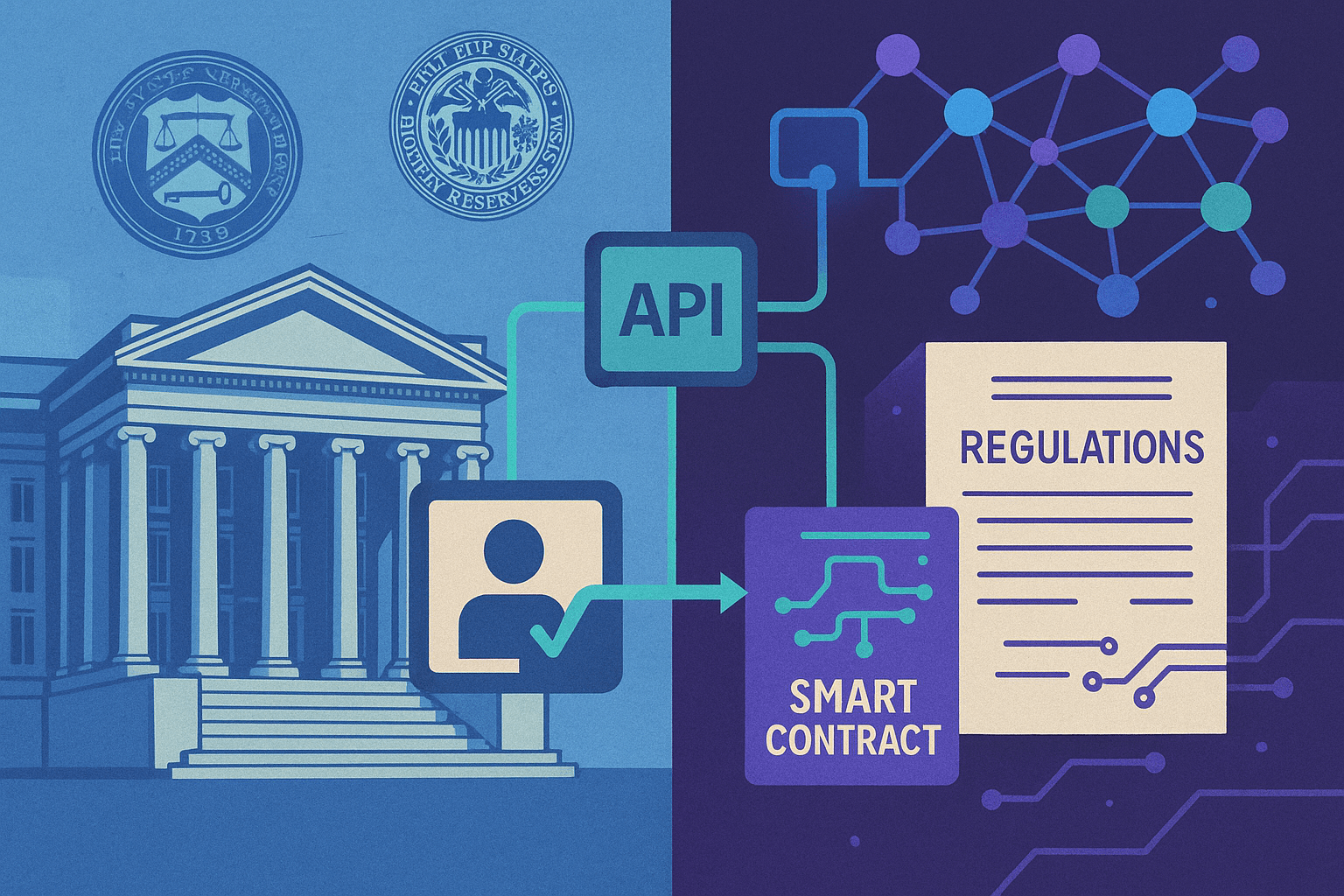
The U.S. Treasury has dropped a bombshell: it plans to mandate the incorporation of digital identity verification tools in DeFi smart contracts. Under the authority of the (GENIUS Act), the Treasury is seeking public comments and wants to enable smart contracts to automatically perform KYC and AML checks via API interfaces. In simple terms, it means forcibly equipping decentralized finance with 'identity card readers.'
The technical path of this proposal sounds appealing: when users interact with DeFi protocols, smart contracts automatically call identity verification APIs, allowing transactions only after verification, with those on the sanctions list being directly rejected. However, there are numerous issues in actual implementation. The transparency of blockchain already makes all transactions publicly traceable, and adding identity verification raises questions about user privacy. Not to mention the diverse nature of the DeFi ecosystem makes establishing unified technical standards nearly impossible.
The reasons provided by regulatory authorities are also quite compelling. According to data from blockchain analysis companies, over $10 billion is expected to be laundered through DeFi in 2024, mostly stemming from hacking attacks and fraud. Traditional financial institutions must comply with strict KYC and AML regulations; why should DeFi be an exception? From this perspective, regulation is indeed necessary.
But the reaction from the DeFi community is predictable. Supporters believe that moderate regulation can enhance the legitimacy of DeFi and attract more traditional funds into the space. Opponents argue that this completely contradicts the original intention of DeFi, which is to eliminate intermediaries. Now, with mandatory identity verification, isn't this a step backward?
The impact of this matter extends beyond the United States. The EU, UK, and Singapore are all closely watching the developments in the U.S., and once the U.S. takes this step, other countries are likely to follow suit. This global regulatory trend could fundamentally change the rules of the DeFi game. Technological innovations might benefit from this, with privacy protection technologies like zero-knowledge proofs and homomorphic encryption potentially playing a significant role in finding a balance between compliance and privacy.
The public consultation period lasts until October 17, and considering the complexity of technical implementation, a complete regulatory framework may not be established until 2026. This gives DeFi projects some buffer time, with some possibly embracing regulation to seize opportunities, while others may move to regions with looser regulations or adopt more decentralized architectures to evade oversight. Regardless, the era of unrestrained growth for DeFi may be coming to an end, and each project must choose whether to adapt to new rules or find alternative paths.


